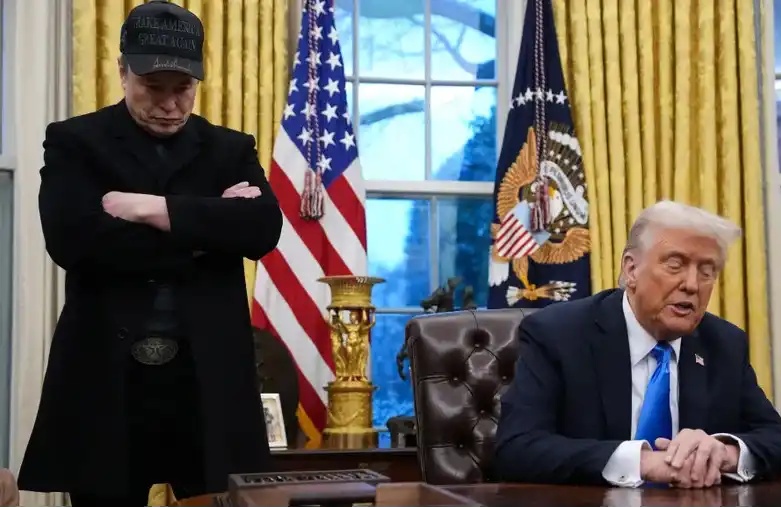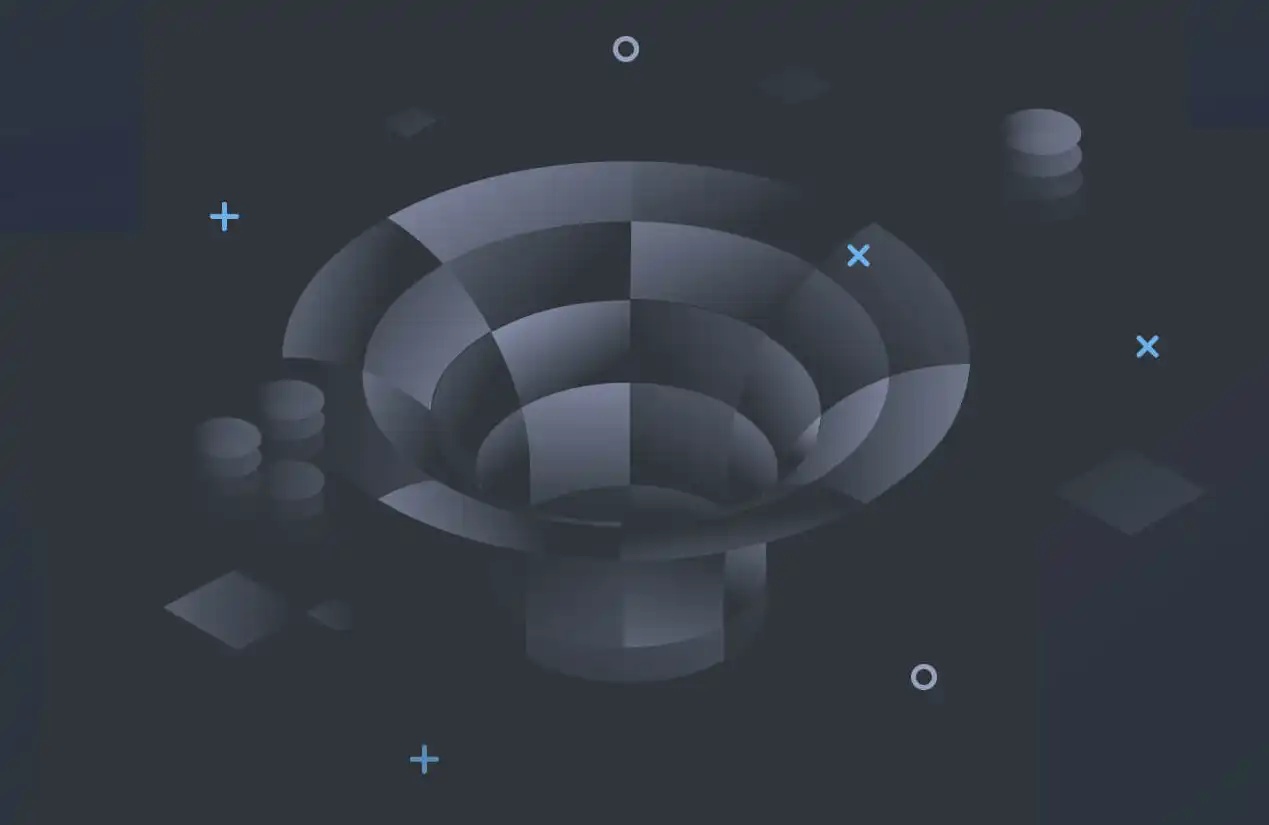Game governance in Web3 part ii: introduction to 6 governance models
Player Governance is going to be a core part of Web3 Games
Author: Taetaehoho. eth @ 1KX Network
Peter Pan @Blockbeats
This is the second part of the game governance in Web3 collection, and the first part of the introduction series is also available for those who want to learn more about game governanceGame governance in Web3 part 1: what is game governance and its pros and cons.
This section highlights six examples of how player governance will become a core part of Web3 games, and what governance structures and best practices have been used in traditional games.
Ultima: Email feedback
Ultima is a series of RPGS developed by Origin Systems, which was acquired by EA, under the leadership of game veteran Richard Garriott.

One of the main criticisms of the game was the demonic imagery and gameplay that involved killing and looting
The player responded to Garriott, who emailed him to say he was frustrated that the easiest way to gain power in the game wasn't to play nice. Garriott inadvertently made a game that made players behave disgracefully because it was the path of least resistance to win.
The feedback in the form of emails has put Garriott on the path to reimagining what computer role-playing games (CRPGS) should look like, and he hopes the next phase of Ultima will reward honor and courage, and punish players who casually degenerate.

In response to player feedback, Garriott created the first ethical system in the game, which made the pursuit of higher ethical standards in Ultima 4 the ultimate goal.
DOOM: Use BBS/Usenet for governance
DOOM is the first person shooter video game series developed by ID Software. It is widely regarded as one of the pioneers of FPS games in the video game industry.

Doom defined and popularized FPS, introduced 3D graphics, and made huge engineering advances
Doom, however, was distributed as shareware on BBS/Usenet. Shareware is free, but access is limited. One good example is Windrar, where users have to buy a CD to play the rest of the game.

Usenet was a PEER-to-peer online discussion system that predated the Internet. Most of its users were college students and office workers, and some of the most popular forums were dedicated to discussing games, focusing on game strategy, cheating and software distribution sharing.

An early example of community governance: Community member Hank Leukart's FAQ about Usenet, which Id Software uses as a forum to distribute and communicate with players.
Specific forums for game governance

Usenet's successor

Specific forums for game governance: chat, find matches, discuss strategies, etc

The first SWG developer chat /AMA in 2001
Web2 Community: Reddit/Discord/Twitter/Twitch, etc
In addition, community management has taken on a larger role as studios and players become more connected.

Original video link
Some things from the video:
- The community manager manages multiple Web2 community channels (Discord, Forum, Reddit, Twitch) to establish two-way communication between players and the team;
The job is to make sure the player feels heard;
- 8 FT community team with 3M community members, it is difficult to talk to everyone, so must establish 80/20 communication method -- solve the most common problems first.
Games are no longer just products, they are now communities. Community managers typically collect feedback, advise and coordinate with developers on updates and marketing strategies; And build an entire space for fans to interact with from the ground up, a job that involves more than just tweeting.
CSM: Game Operation Board & NBSP;
The CSM, a player-elected board for the running of the game, collects advice on "EVE development priorities and long-term roadmap," "discussing ideas, theories and design approaches for potential EVE Online features," and "getting ideas about ways to move forward positively."
CSM will hold regular online meetings with community teams and MEMBERS of EVE online game development, access to selected internal sites and direct links to teams throughout the organization.

Lehdonvirta and Castronova argue that the board model diverts lobbying and negative mail from developers, provides a better aggregation, filtering funnel, and helps build credibility in decision making.
The introduction of the council model also reduces centralization and complexity compared to the previous model. Today, the governing council model is very common.
Runescape
Further extensibility can be achieved by choosing decentralization, assuming that the board allows developers to get higher signal feedback and helps alleviate bottlenecks in community manager capabilities. In a few iterations of game governance, I'll look at what I see as additional efficiencies from the board model in the decentralized complexity curve.
RuneScape was a web-based massively multiplayer online role-playing game developed in Java by Jagex in the UK, but after two unpopular updates, RuneScape lost subscribers and loyal players had to turn to other channels, Community member So Wrecked launched a petition on Change.org to restore the old servers.

Original video link
Players have asked Jagex, the studio behind Runescape, to restore some of the old game servers to the game, and by doing so, Runescape will see the return of a once-thriving community. In response, Jagex published a Vote, which, depending on the results, will allocate different levels of development resources and provide additional benefits for the game.
因此,就像狂野与自由贸易回归的民意调查一样,140 万张投票令人瞠目结舌,玩家将进行类似的民意调查,让玩家决定「Old School RuneScape」的命运。鉴于玩家直接资助游戏的持续开发和支持服务,因此连同服务水平、投资和可能的任何额外服务费用都将真正由玩家决定。

By the end of the two weeks, more than 449,000 votes had passed, giving rise to the now more popular OSRS. Despite not reaching 500-750K + tickets, Jagex delivers many of the promised features in OSRS.
Today, any member with a total level of over 300 and more than 25 hours of play time can vote on items from the player forum, including a number of new missions, equipment and additional items.

One of the most engaged and anticipated votes: the introduction of the corporate ironman game mode
As one player described it, when a bad change could ruin the game (EOC, trade restrictions, etc.), players don't hesitate to choose some potentially better update to prevent any chance of making the game worse.
Currently, players are moving away from the OSRS voting system, which introduced Runescape based on player vote-driven development. Today, I expect a similar governance structure to be applied to cryptographic games today.
llluvium
In Illuvium, token ILV holders are entitled to vote for members of the Illuvium Council. Voting is done twice to reduce the impact of whales, and the council can vote on two types of proposals:
1) Illuvium Configuration Change Advice (ICCP), which includes several modification system configuration variables: market fee, capture mechanism, balance change, council values;
2) Illuvium Improvement Suggestions (IIP), some factors that changed the system: new contracts, new system proposals, extensions, character sets.
So far, 21 Iips and one ICCP have been proposed. All but two proposed Iips have been approved. Let's look again at some proposals in practice and token-based two-game governance.
IIP 10
IIP 10 will use Unity to develop a 3D isometric city-building game that will provide regular updates to the community, including proof-of-concept and non-blockchain linked versions of the App Store and Google Play Store, Integration with Illuvium through the Solidity contract will be implemented prior to the final release. The ultimate goal is to have a mini-game interface with the major Illuvium games for revenue distribution and NFT creation.
One version of the update will build a community consensus about the mini-game through extensive discussion on Discord. A game design document was then released for further community review. Once soft consensus is reached in Discord, the file is voted on Snapshot and approved unanimously.
However, it also reveals some flaws in Illuvium's governance system:
- Since the pledge receives all the revenue generated by the agreement, it is in the best interest of the community to extract maximum value from players;
- Therefore, there is a bias between current tokenholders and potential players, especially if the player base is larger than the current tokenholders;
- The team and early investors also receive income distribution, and in cases such as land sales, their incentives are in line with those of the first two. Otherwise, it's in their best interest to bring in more players who interact with the economy and are aligned with token holders and future participants.

This is a thorny issue and may be a fundamental governance issue. Ideally, games are designed for both the current audience and the potential audience. But giving early token holders broad game development rights could alienate potential players.
Therefore, I personally believe that the best governance model is a function of the type of game, the audience, and the maturity of the game. Here, perhaps it's a suboptimal decision to grant the token-holder the right to design the game through an IIP for a game that hasn't been released yet.
That being said, income distribution is a great way to align incentives between token holders and teams.

Review the governance of Castronova and Lehdonvitra, especially for games that have not yet been released and are dealing with token holders and future players.
How does this differ from EVE CSM and Runescape's combination of voting systems?
Scope of voting:
- IIP10 board members will be able to vote on a new game model that pushes core revenue to the pledge of tokens;
- Players can control core development resources through representation
- Players vote against the short-term financial interests of investors and teams (IIP4).
Despite the radical experiment, there are still some problems with secondary voting based on tokens:
- Whales still have a degree of control -- largely inevitable in any token voting scheme;
- Misalignment between existing stakeholders and potential stakeholders (token holders, investors and potential participants);
- Other issues of representative democracy.
Solutions as outlined by Vitalik:
- Limited governance;
- Non-co-voting programmes, such as proof of personality and proof of participation systems;
- Skins in game solutions, where players vote to determine their payouts.
Citadel Game
Flamsanct, who worked on governance at Citadel Game, is familiar with previous governance models. They recently released a governance manifesto on how they plan to build governance processes into the game.
It argues that decentralization will occur over time, and decentralized autonomy means that any single part is free to do all kinds of innovation and experimentation without asking permission.
From divergent creative chaos, the process of convergence is bringing together the best ideas and then consciously integrating and making decisions. These include: consuls of elected leaders who provide administrative oversight, guidance and back-up decision-making to other groups; Promote proactive communication, ask team leaders to share lessons learned and maintain an open feedback loop; Promote social and cultural community building and strengthen relationships and communication across the DAO.

This approach solves a big problem with self-government, which is that purely direct democratic decision-making models do not scale well. Through working groups and limited delegation, trusted and competent community members can be empowered to act independently on behalf of the DAO, and those most likely to make the right decision are trusted to use their judgment, but still accountable to the DAO's voting body.
Badge reputation System & NBSP;
You can see Citadel Game's badge and reputation system, where high-value contributors or those who complete the program receive certification and on-chain badges, which then allow access and subsequently move into governance roles.
There are several forms:
- Power to the Players governance, a proposal for voting rights to be scaled exponentially, time-based voting rights to be attenuated against gerontocracy;
- Participation voting of Onchain governance proves that it is possible to create a sybility-resistant scale voting system, assuming robot capture and gas costs;
In addition, in OSRS voting, only those who have more than 300 levels in total, 25 hours of play time and are members can vote in the voting.

Upgrade the theoretical graph of the player's voting ratio over time
The general idea is to use the data available in the game rankings to represent a person's participation in the ecosystem to grant that agent a portion of the total voting power. For example, you could create a system where players hold 50% of linear proportional voting, token holders hold 50%, and there would be significant overlap between the two constituencies if the game released governance tokens.
In theory, the additional complexity and optimization of layering on top of this system is enormous. Here are some examples:
- Give people more voting power based on other criteria, such as contribution to the community, including content creation, tool building, esports, etc.;
- In order to combat elder domination and free riding, it can be operated by season. At the beginning of each season, those who contributed during the previous season will receive enhanced tokens, which will further increase their participation based voting score or token based voting score;
- Manage automated or non-automated systems to choose who is awarded these enhancements, especially in a system with valuable governance capture;
-- These are largely useless as airdrop optimizations, everything leads to dumping, but in practice decentralized game governance is a meaningful step forward.
Using such a system also raises a number of other possibilities:
- A group of high-level players band together to lock up their tokens in a guild and vote as a single block, representing the interests of the elite player base (gaming party);
- The board or initial team can identify contributions to the ecosystem beyond game skills, such as tool builders, educators, meta-theorists, or who want to be motivated by meaningfully adding decision "voices";
- Political entities contribute to the game and exert more influence to tilt the game in a certain direction.
Decentralized game studios
Different aspects of the game require different expertise, and each part -- be it content, economy, bugs, business development, partnerships -- can have different community feedback structures, make up decision makers, and depend on the type and maturity of the game.

Citadel Game and the badge based participation system gave us an idea of how such a working group could be organized to serve the sub-council of each DAO, but we have yet to see this successfully implemented in larger practice. That's what we're doing with the Metaportal DAO, and we're happy to be announcing more soon.
The original link
Welcome to join the official BlockBeats community:
Telegram Subscription Group: https://t.me/theblockbeats
Telegram Discussion Group: https://t.me/BlockBeats_App
Official Twitter Account: https://twitter.com/BlockBeatsAsia
 Forum
Forum OPRR
OPRR Finance
Finance
 Specials
Specials
 On-chain Eco
On-chain Eco
 Entry
Entry
 Podcasts
Podcasts
 Activities
Activities


 Summarized by AI
Summarized by AI







